 Looking for that next step in your career? Searching for your dream job? What better way to celebrate Labor Day than with some fresh newspaper and journalism job listings throughout New England!
Looking for that next step in your career? Searching for your dream job? What better way to celebrate Labor Day than with some fresh newspaper and journalism job listings throughout New England!
The NENPA job listing page is a great resource to assist in your job search and to post open positions at your organization. NENPA members can post jobs at no cost.
Job listings are updated regularly and often include open positions for journalists, editors, publishers, photojournalists, newspaper ad sales, and more.
Check out some of the latest listings below and follow the links for full job descriptions.
EDITORIAL JOBS
Local News Reporter
The Republican-American, Sunday Republican, and rep-am.com in Waterbury, Conn., seeks a reporter who knows every community deserves quality, important, impactful, and engaging journalism. This opportunity includes a broad range of reporting: town and school news, police reporting, enterprise for deeper dives. Online work, ability to shoot photos, solid clips, and some newsroom experience are a must (solid internships count)…
Staff Reporter
The Portland Phoenix is looking for a reporter who can produce investigative and interpretive stories, write inspiring features, and keep up with local news. The successful candidate should have news writing experience, a relentless curiosity, the ability to attend some night meetings if required, and a reliable vehicle. Familiarity with WordPress, and the ability to produce photos that complete your stories are additional qualifications…
News Reporter
The Daily Hampshire Gazette seeks a full-time news reporter to be part of a hardworking team focused on covering the news of the Pioneer Valley. News reporters share in producing breaking news, community coverage, business, enterprise, investigative, and news feature stories. We all work some evenings, weekends and holidays. Experience with photography and video is a plus, as experience mining a news beat and covering local government. This is a fast-paced, deadline-driven environment requiring strong multi-tasking skills…
Opinion Editor
The Day Publishing Company is looking for a dynamic individual to be the Editorial Page Editor for The Day of New London and theday.com. The position requires strong leadership qualities and collaboration skills and a willingness to take on controversial subjects. The Day has a long history of speaking with a strong voice on issues that impact the local communities it serves, as well as state-wide issues…
Managing Editor
The Provincetown Independent, an award-winning independent newspaper published weekly in print and online, is seeking a Managing Editor. This role involves close collaboration with the Editor to develop each issue and with the Publisher to oversee weekly publishing operations and reports directly to the Editor. The Independent covers the four outermost towns on Cape Cod…
Reporter
Providence Business News, southern New England’s leading business publication, is looking for an enterprising, energetic reporter to help cover one of the nation’s most diverse business communities. From finance to manufacturing and health care, and government to tourism and technology, Providence and the surrounding region provide an endless variety of stories…
ADVERTISING JOBS
Advertising Sales Consultant
Are you a sales professional who can balance sales & service to existing accounts with hunting & closing new business? Pioneer Valley Media Group is seeking a professional with one to two years of outside sales experience, digital marketing skills, and an understanding of how the evolving media landscape impacts today’s business owners. A family-owned company, we publish the Daily Hampshire Gazette, Greenfield Recorder, Athol Daily News, two weeklies, and several websites, delivering the hyper-local news that citizens want, as well as the audience that businesses need. We also have a comprehensive digital services product portfolio, making Pioneer Valley Media the ideal partner for our local business community!
Advertising Sales Representative
Beaver Dam Partners Inc. is the Wareham, MA-based publisher of Wareham Week, Sippican Week, and Dartmouth Week and their companion WeekToday websites. The three papers profitably reach a combined weekly audience of nearly 50,000 readers in five towns. Beaver Dam is now ready to take itself to the next level by hiring its first full-time employee dedicated to advertising sales…
Advertising & Marketing Account Executive
Addison Press is a family-owned and operated independent news organization based in Addison County, Vermont. Our dedicated team publishes the weekly Addison County Independent as well as the Brandon Reporter, each working to serve valuable local news and information to the communities we live and work within. We value our long-held relationships of trust and confidence with our news and advertising contacts and proudly work every day to help our local community thrive. We are seeking a full-time advertising account executive interested in diving into the community…
Advertising and Marketing Representative
The Enterprise is a media company whose mission is to report local news and information to the citizens of the communities in which we live and work. Their trust embodies and reflects the value of our brand. Our business is, in the best sense, intensely local. The Enterprise is hiring an advertising and marketing representative. We are seeking a self-starter ready to seek and close new business and service existing accounts. In this fast-paced industry, it’s important that this person be organized, hardworking, and, most importantly, eager for success…
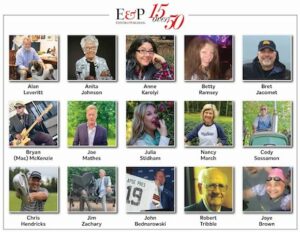 Anne Karolyi, Managing Editor, Republican-American, The Sunday Republican, and rep-am.com, in Waterbury, CT is included in Editor & Publisher’s second class of 15 Over 50 honorees, recognized for their dedication to the news publishing industry. Bob Sillick writes in the E&P article,
Anne Karolyi, Managing Editor, Republican-American, The Sunday Republican, and rep-am.com, in Waterbury, CT is included in Editor & Publisher’s second class of 15 Over 50 honorees, recognized for their dedication to the news publishing industry. Bob Sillick writes in the E&P article,
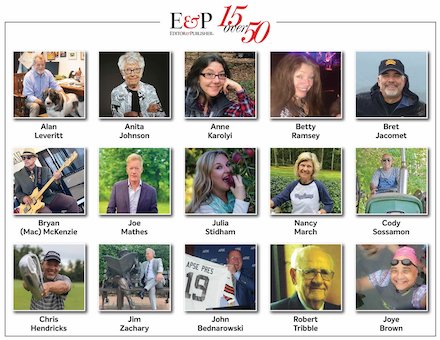
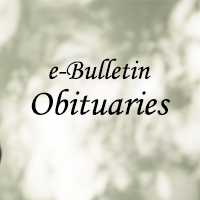
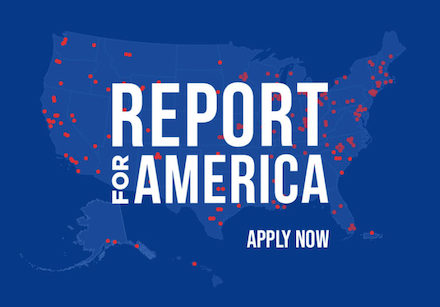
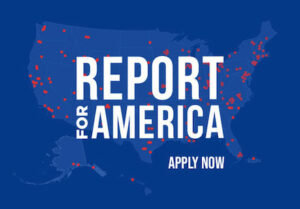 The deadline for news organizations interested in partnering with
The deadline for news organizations interested in partnering with 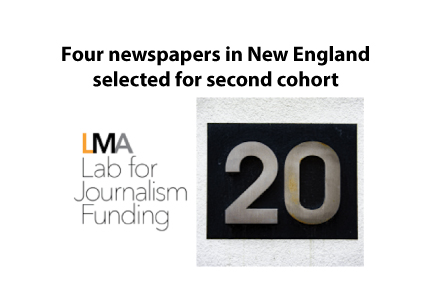
 In late August, the
In late August, the 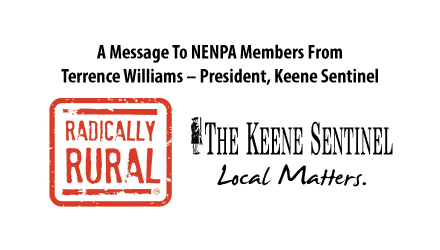
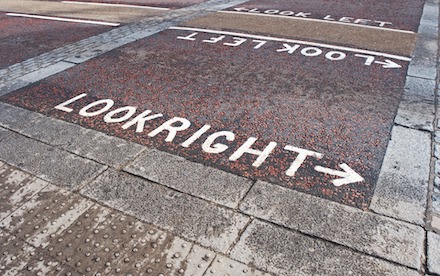

 Looking for that next step in your career? Searching for your dream job? What better way to celebrate Labor Day than with some fresh newspaper and journalism job listings throughout New England!
Looking for that next step in your career? Searching for your dream job? What better way to celebrate Labor Day than with some fresh newspaper and journalism job listings throughout New England!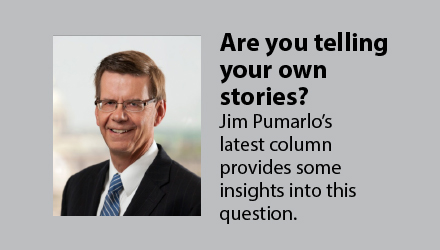

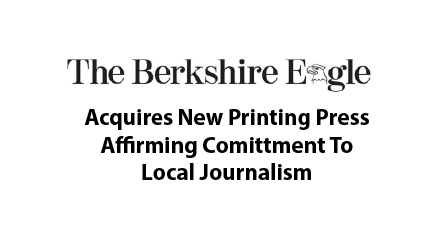
Perspective: Protect assembly and petition by preserving listening at public meetings
Two of the least-known freedoms protected by the First Amendment — the rights of assembly and petition — are being tested in today’s rancorous, confrontational social atmospherics.
With confrontation comes vexing problems, for both speakers who fear retaliation from opponents and the government officials who often must preside over meetings that run from contentious to violent.
DEMOCRACY REQUIRES ROBUST BUT PEACEABLE DISCUSSION
To be sure, more of us than seen in recent decades are speaking out peacefully, from those opposed to what they see as heavy-handed government enforcement of COVID-19 restrictions to Black Lives Matter supporters calling for police reform.
Passions run high. The words, like the issues, are strong and challenging. But the process of self-governance calls for degrees of patience, tolerance and often — in the final push to a workable policy — compromise. The First Amendment itself provides protection when we “peaceably assemble” and “petition the Government for a redress of grievances.”
No strangers to the hot tempers, provocative speech and outright violence that accompanied political turmoil in their day — think Revolutionary War — the nation’s founders felt compelled to provide protections in the amendment for two contrary ideas: We can speak in tones, terms and words that provide for what the U.S. Supreme Court in 1964 called “robust, uninhibited and wide open” discussion of public issues. But then the founders provided that conceptual counterweight word just before assembly and petition: “peaceably.”
SPEAKING HAS A COROLLARY: LISTENING
While the First Amendment allows no government judgment about the content or viewpoint of what we say, we ought to be worthy of its protections by having something worth saying.
And it follows that if it was worth saying, it’s worth hearing — if only to be better prepared with a counterargument.
Far too often today, that entire thread that supports our core freedoms is lost in the heat of the moment — or in intentional disruption that, no matter how loudly one proclaims patriotism or waves a flag, is just as anti-American as any foreign foe.
We have “robust” public discussions on small and large issues, not just to vent our emotions as a kind of civic therapy, but to parse approaches, proposals and legislation and determine that which best serves the greatest number of our fellow citizens, hopefully in the shortest amount of time.
The “heckler’s veto” and intentionally packing meeting rooms with vocal opposition to intimidate public officeholders are tactics as old as time, but that does not make them valid in a participatory democracy.
WHERE FIRST AMENDMENT PROTECTIONS END
Federal and state courts through the years have held that the public has a right to attend and speak at government meetings — but also have upheld the authority of public officials to set reasonable “time, place and manner” rules to ensure orderly sessions or deal with intentional disruption.
Such rules walk a fine line between protected free speech on matters of public interest and allowing government to carry out its responsibilities. Courts consistently have said government officials cannot restrict speakers because of their viewpoints, however controversial or critical.
But free speech protections do not cover threats of immediate violence — which may well include protesters threatening harm to speakers in the parking lot following a meeting. Even more importantly, such threats have a multiplier effect, likely chilling speech far beyond the specific target. A new survey by the Freedom Forum, to be released Sept. 22, finds significant numbers of our fellow Americans today fear retaliation if they voice their opinions.
Let’s turn to Franklin again: As he was leaving the Constitutional Convention, he reportedly was asked what sort of government the delegates had created. His answer: “A republic, if you can keep it.”
For more than two centuries, we have kept that republic in no small degree because we have freely spoken to each other, secure from government interference or punishment — benefiting from that shared wisdom Franklin noted.
And, just as certainly, we have kept that republic because so many times we also have listened.